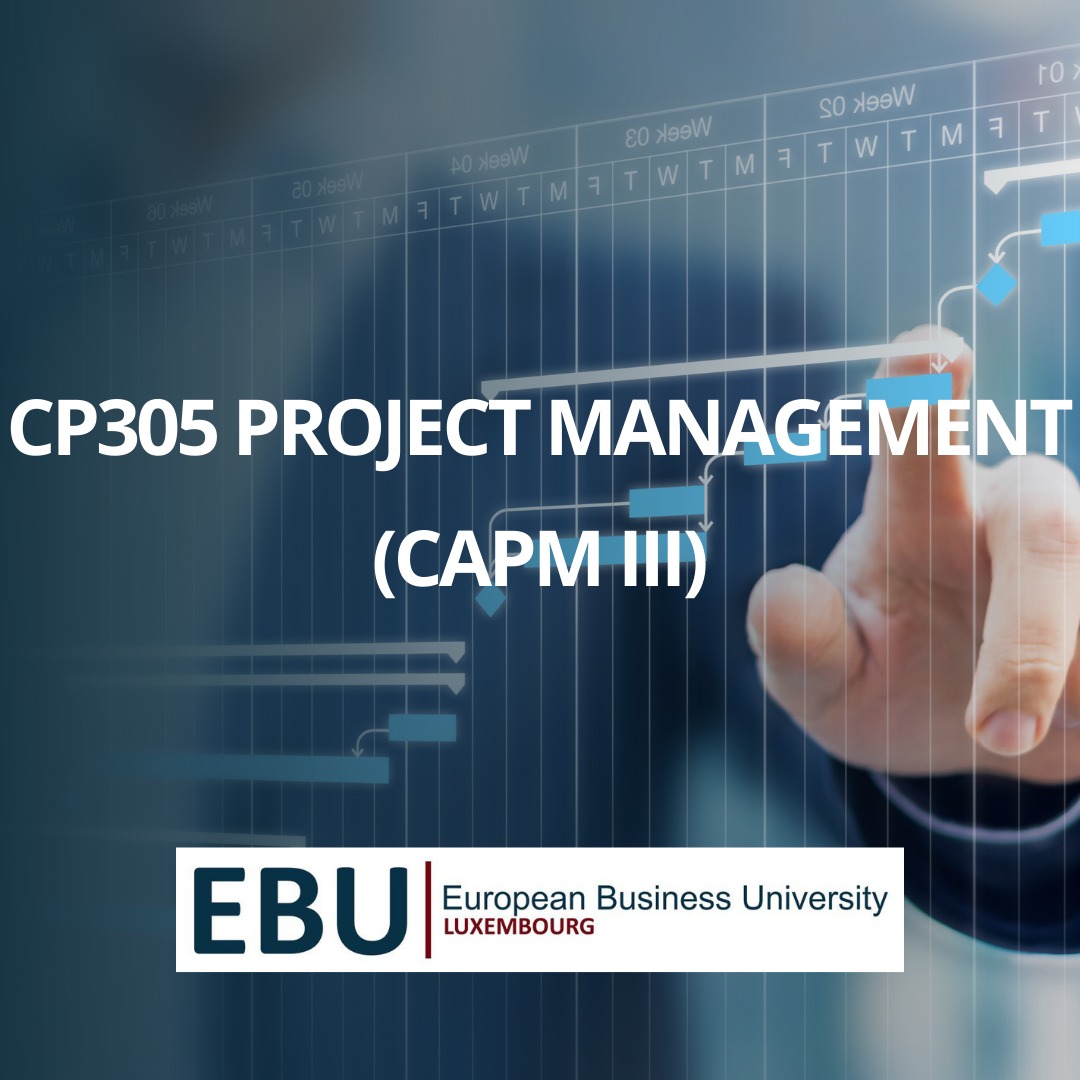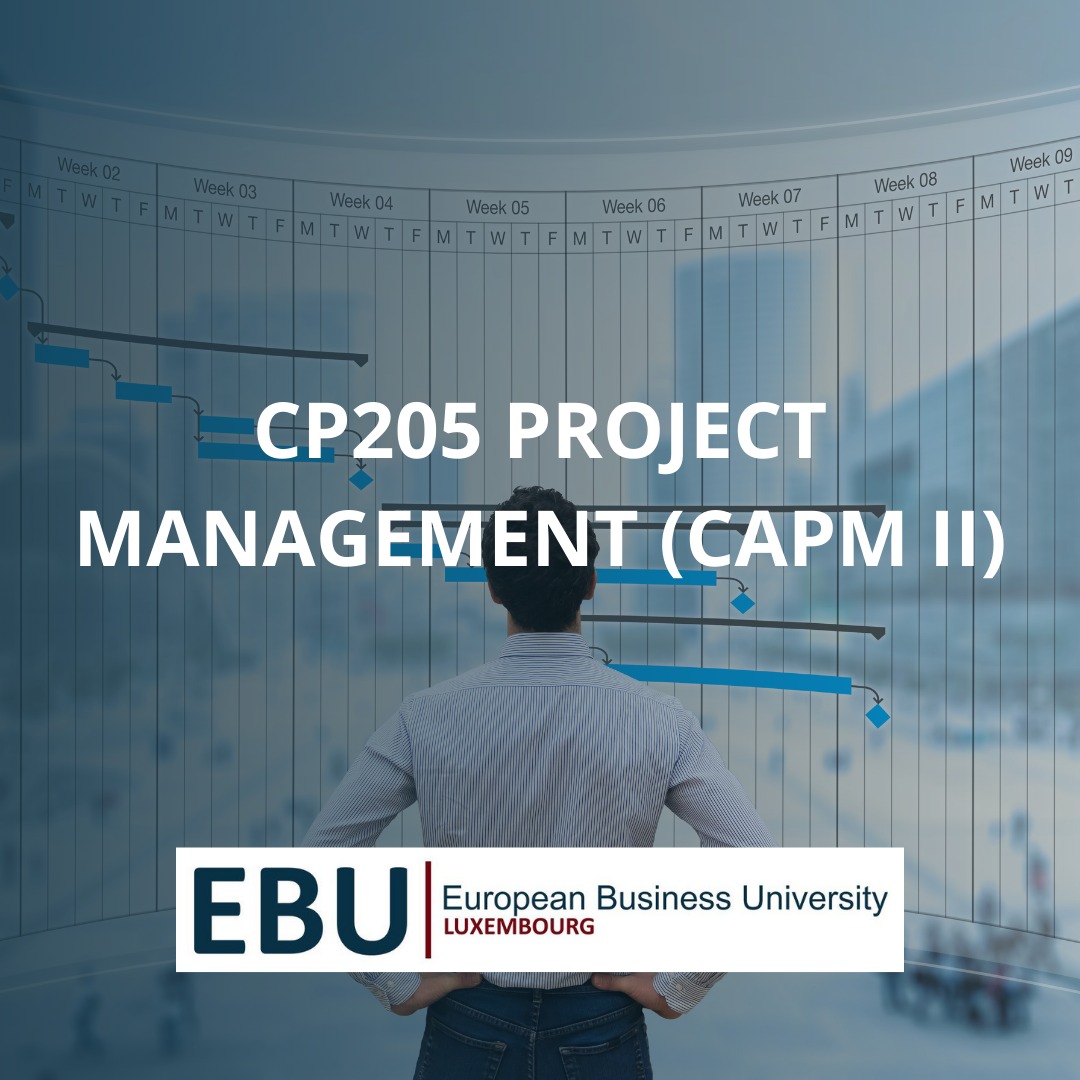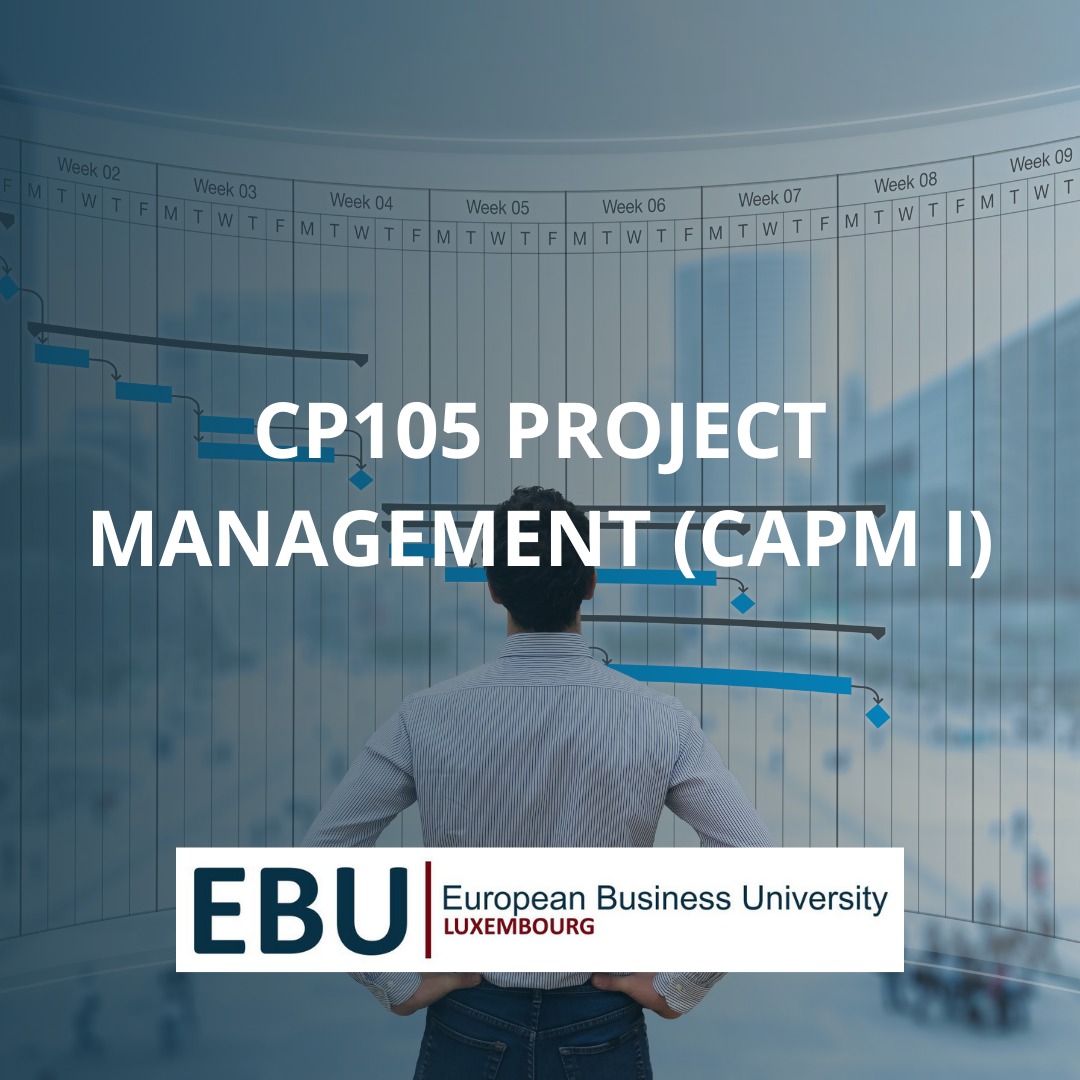
Pre-requisites for the course:
1. CP105 – Project Management (CAPM I)
2. CP205 – Project Management (CAPM II)
3.CP305 - Project Management (CAPM III)
The Course CP305A Project Management (CAPM IV) is the final course in a series of 4 during which you will be introduced to the “Art of Project Management”. During this course module, you will continue learning about the PMI Certification of Certified Associate in Project Management abbreviated as CAPM. After learning about the tools and techniques, terms and terminologies and important concepts in CAPM I and II we will now look deeper into the certification program and knowledge you need to pass the CAPM exam organized by the Project Management Institute by introducing the remaining chapters and knowledge areas. The main document that we will work with and refer to when describing the different elements is the Guide to the Project Management Body of Knowledge also referred to as the PMBOK®. This course will prepare you to take the exam by reviewing all topics included in the PMBOK and passing test quizzes that are set up per section and that will provide you with typical questions as you can find in the real exam.
At the end of this course module CP305A Project Management (CAPM IV), you will have the opportunity to
test your knowledge on a real 3-hour exam simulation covering 150 questions.
NOTE: The Project Management Program certificate will be issued after completion of all 4 modules: CAPM I, CAPM II, CAPM III and CAPM IV.

Pre-requisites for the course:
1. CP105 – Project Management (CAPM I)
2. CP205 – Project Management (CAPM II)
The Course CP305 Project Management (CAPM III) is the third course in a series of 4 during which you well
be introduced into the “Art of Project Management”.
During this course module, you will learn about the PMI Certification of Certified Associate in Project
Management abbreviated as CAPM.
After learning about the tools and techniques, terms and terminologies and important concepts in CAPM I and
II we will now look deeper into the certification program and knowledge you need to pass the CAPM exam
organized by the Project Management Institute.
The main document that we will work with and refer to when describing the different elements is the Guide to
the Project Management Body of Knowledge also referred to as the PMBOK®.
This course will prepare you to take the exam by reviewing all topics included in the PMBOK and passing test
quizzes that are set up per section and that will provide you with typical questions as you can find in the real
exam.
NOTE: The Project Management Program certificate will be issued after completion of all 4 modules: CAPM I, CAPM II, CAPM III and CAPM IV.

During this course module, you will review the main topics that were introduced in the previous course module, and we will introduce more complex elements and techniques for project planning and apply all on a complete exercise.
The next step in this course is about the project management process step execution monitor and control of the project and project closing. This will also include Earned Value Management Principles.
Since the ten steps approach does not include quality management, stakeholder and communications management and procurement management, the principles of these knowledge areas will be introduced.
The final part will be dedicated to Critical Chain Project Management (CCPM) and Agile.
NOTE: The Project Management Program certificate will be issued after completion of all 4 modules: CAPM I, CAPM II, CAPM III and CAPM IV.
NOTE: The Project Management Program certificate will be issued after completion of all 4 modules: CAPM I, CAPM II, CAPM III and CAPM IV.
The Course CP105 Project Management (CAPM I) is the first course in a series of 4 modules during which you will be introduced into the “Art of Project Management”. Each module will increase your knowledge about project management prepare you not only for certification but also to participate in projects as efficient team members.
During this course module, you will learn about the projects and project management, and focus on the origin and selection of projects the definition of a project and creating the project plan.
This will include the origin of projects, how to select between projects using decision making methods and financial parameters, introducing important definition and terminology that all project managers use, providing an easy to use ten-step approach to project management to help you manage projects from definition to closing, application of different techniques.
The techniques that will be described in this section relate to the creation of the charter, developing the work breakdown structure, defining the work packages and activities, precedence diagramming methods including the critical path method, creating the project schedule or Gantt, resource allocation, project budget and S-curve and finally the principles of risk management.

The Course CP105 Project Management (CAPM I) is the first course in a series of 4 modules during which you will be introduced into the “Art of Project Management”. Each module will increase your knowledge about project management prepare you not only for certification but also to participate in projects as efficient team members.
During this course module, you will learn about the projects and project management, and focus on the origin and selection of projects the definition of a project and creating the project plan.
This will include the origin of projects, how to select between projects using decision making methods and financial parameters, introducing important definition and terminology that all project managers use, providing an easy to use ten-step approach to project management to help you manage projects from definition to closing, application of different techniques.
The techniques that will be described in this section relate to the creation of the charter, developing the work breakdown structure, defining the work packages and activities, precedence diagramming methods including the critical path method, creating the project schedule or Gantt, resource allocation, project budget and S-curve and finally the principles of risk management.
